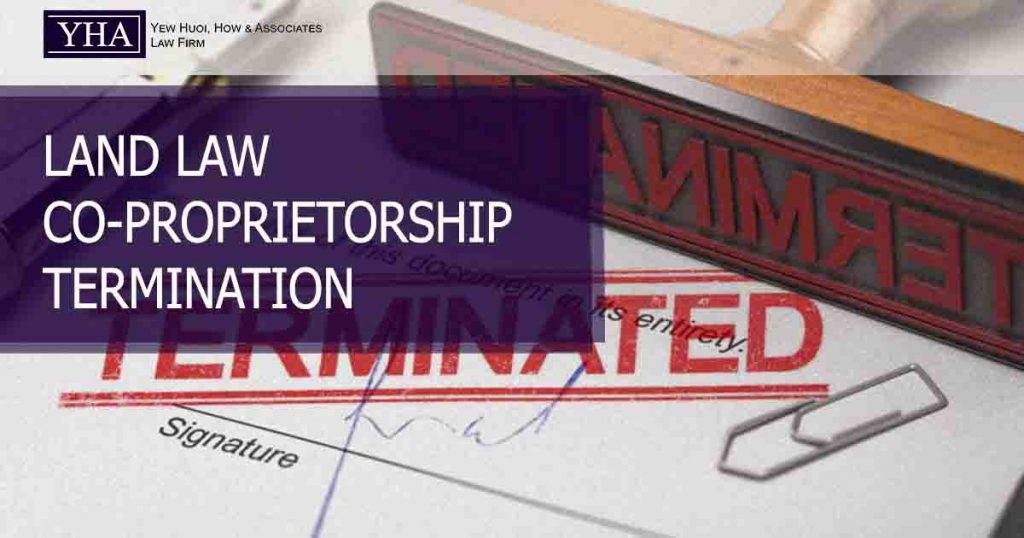We have in our earlier legal updates on Property Law Co-Proprietorship-Termination set out how you may apply to court to terminate the co-proprietorship either by partition, sale or transfer when there is a deadlock.
Q: Do I have to first apply to the land office before applying to court to terminate the co-proprietorship?
No. The new insertion of Section 141A in the National Land Code 1965 (“NLC 1965”) gives co-proprietor as an alternative avenue to apply to the land office to terminate the co-proprietorship when there is a deadlock. Section 141A is a “permissive section”.
You can make an application to the court terminate co-proprietorship under Section 145; even before an application is made under s. 141A.
Q: What are the criteria for partition under both s. 141A and 145 of the NCL 1965?
The applicant has to comply with the criteria in Section 136 of the NLC 1965 as follows:
- The partition would not contravene any restriction in interest of the land;
- The partition would not contravene any laws;
- Approval from the planning authority is obtained;
- The partition would not contravene any plan approved by the State Authority of the development area which the land is located;
- If State Authority consent is required, consent has to be obtained;
- No land revenue is outstanding;
- Consent in writing is obtained from chargee, leasee or lienholder;
- If it is an agriculture land, the area of partition should not be less than 2/5 of a hectare and for any other land, the land size should not be smaller than what is determined by the planning authority;
- The land after partition is suitable for its intended use; and
- The partitioned land would have a satisfactory means of access.

